Bee in the know: Starting a backyard beehive
Domestic beekeeping is a fast-growing hobby but do your research to avoid getting a sting in your tale.
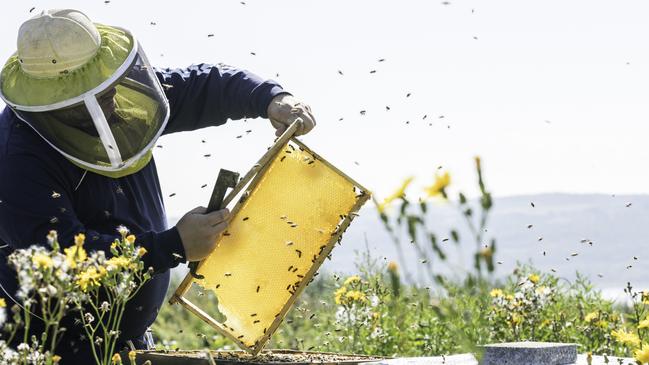
Home
Don't miss out on the headlines from Home. Followed categories will be added to My News.
Bees are such clever little buzzy-bodies. Keeping bees is a rewarding pastime that connects you to nature and helps the environment by increasing pollination.
Jack Evans is relatively new to apiculture, but loves the company of the new residents at his Avalon home in Sydney’s northern beaches.
“I’ve got a seat by the hive and twice a day I have a cup of tea and sit and watch the bees,” says Jack. “There’s always something going on.”
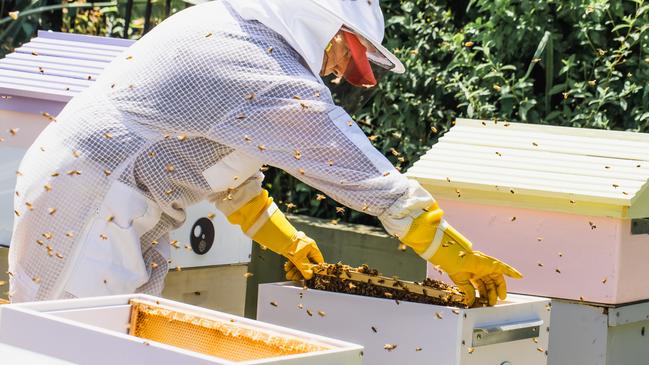
There are some 30,000 registered beekeepers in Australia – about 9000 are commercial keepers who maintain over 600,000 hives, producing the bulk of Australia’s honey. But another 20,000 are backyard owners like Jack, who have one or two hives.
Hobby hive owners keep a valuable skill alive, support bee conservation and get a great sense of enjoyment plus beeswax and honey for friends and neighbours.
And it can be a lot of honey. A good working hive has around 10,000 bees and six frames within it will generate two litres of honey per frame. Some amateur hives will create up to 100 litres of honey per year.
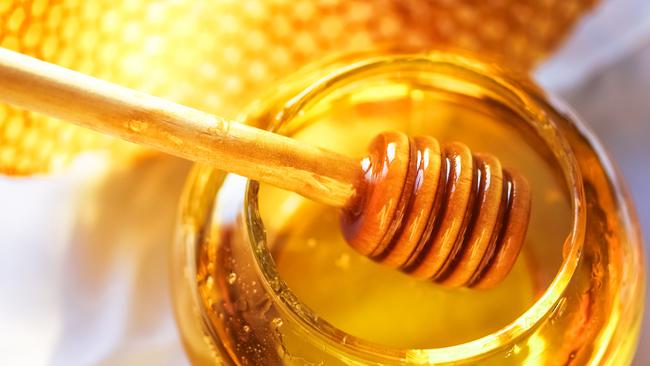
Watching the queen (only one in the hive, lays all of the eggs) interact with the workers (all female) and the drones (all male) go about their business can be both fascinating and life-affirming. Their ‘business’ being to pollinate the local environment and produce honey in the process. A third of the food we eat, including everyday fruit and vegetables grow thanks to the pollinating work of bees.
Sound enticing? Keep reading. There are a few important things you need to know and do to start your apiary and avoid getting stung.
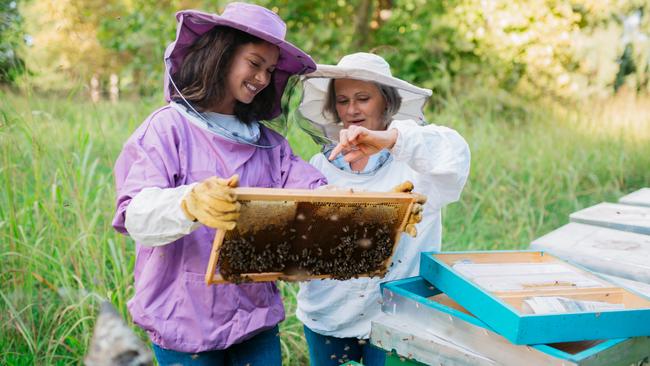
WHAT A BUZZ
Get the gear
You can buy a hive online as a kit and assemble yourself. The hive then needs to be registered with the Beekeepers of Australia - you’ll receive an official hive number and will have occasional inspections. Protective equipment to wear is also essential and easily purchased online. One thing that is also really important is a smoker.
A few puffs of smoke with the smoker will make the bees docile and dampen any intention of stinging you if they become cranky. And stinging is always a definite possibility.
“Some days the bees are very docile and you can handle them with bare hands,” says Jack.
“The other day I had a look after a swim and must have smelt different and I was stung a few times.”
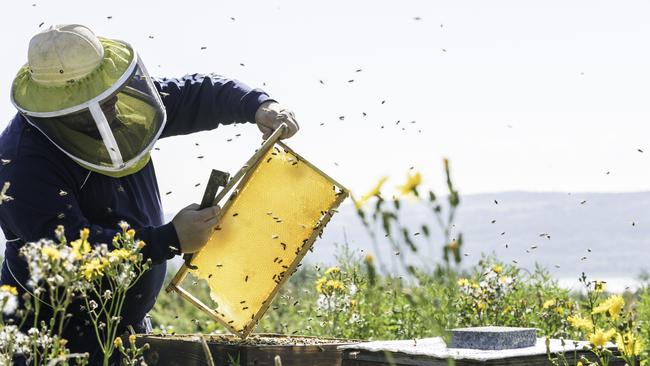
Get the knowledge
Do a course, watch videos, read up and make sure you’re fully prepared before you start to purchase anything. And in particular, local knowledge can be important – the climate you live in can even affect what type of bees you decide to purchase. There are plenty of local beekeeping clubs to join, as well as courses to sign up for and also state-based associations to register with. Jack also particularly recommends a friend or mentor if you can find one.
“A good friend gave me my first lot of bees,” explains Jack. He also schooled Jack in how to best look after his bees and how to behave too. “Bees actually realise when you’re not confident and can attack you,” he warns.
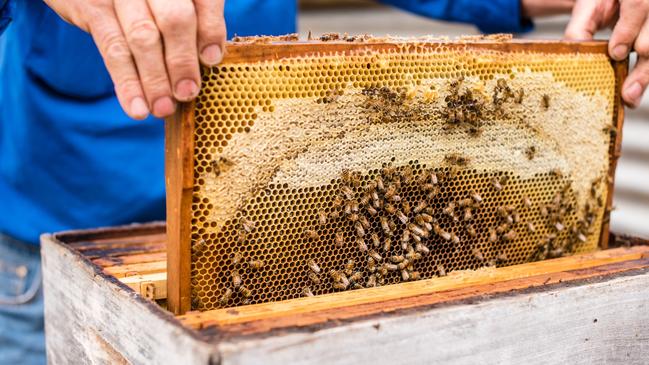
Get the bees
The most popular bees are the common European honey bees, which can sting, but create plenty of honey. The alternative is native stingless bees. Smaller than European bees, they create less honey, but are a better choice if you live in a high density area. There are different species of native bees to choose from with each suited to a different part of the country. Native bees don’t need to be registered.
Be aware that in autumn the European bees will grow too big for one hive and want to swarm. Splitting the hive will satisfy their swarming needs and double your potential honey harvest. Plenty to learn, plenty of issues to contend with, but plenty of honey and enjoyment to be had.




